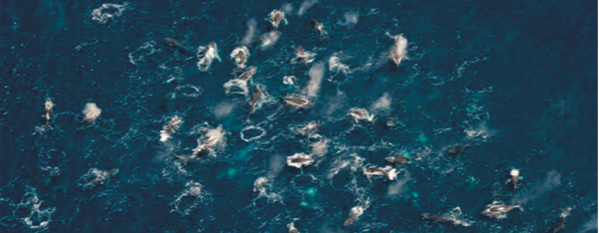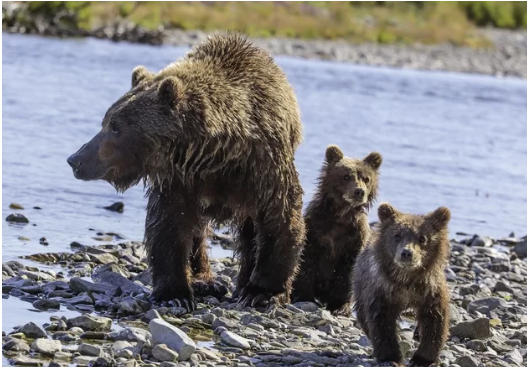Humpback Resurgence

Super-groups of humpback whales have been observed with increasing frequency during the past five years off South Africa’s Atlantic coast.
The species hadn’t normally been considered all that social, usually being found in pairs or small groups that congregated only briefly. But research missions in 2011, 2014 and 2015 found humpbacks feeding and frolicking in groups of up to 200.
The whale had been hunted nearly into extinction, but its populations have seen an unexplained resurgence.
Scientists believe the super-group gatherings could possibly be the return of a previously unobserved feeding strategy thanks to the newly abundant population.
White-nose Syndrome discovered for 1st time in Texas

The fungus known to cause White-nose Syndrome (WNS), a disease that has decimated hibernating bat populations in the United States and Canada, has been discovered for the first time in Texas. The fungus Pseudogymnoascus destructans (Pd) was detected on three species of hibernating bats in northern Texas: the cave myotis, Townsend’s big-eared bat, and the tri-coloured bat.
'Devastating' coral loss in South China Sea

Scientists are warning of another "devastating" loss of coral due to a spike in sea temperatures. They say 40% of coral has died at the Dongsha Atoll in the South China Sea.
Nothing as severe has happened on Dongsha for at least 40 years, according to experts.
The Dongsha Atoll, located in the South China Sea, near south-eastern China and the Philippines, is rich in marine life and is regarded as one of the world's most important coral reefs.
The researchers said on its own, a 2 degrees Celsius rise in temperatures was unlikely to cause widespread damage to coral reefs in the region. But, a high-pressure system caused temperatures to spike to 6 degrees, leading to the death of 40% of coral over the course of six weeks. Coral reefs are shallow water ecosystems and a tweak in the local weather can turn that 2 degrees Celsius into a 6 degrees Celsius warming.
Hunting of Grizzly Bears in Alaska Refuges
The U.S. Senate voted, mostly along party lines, on Tuesday (March 21) to abolish a regulation that prohibited certain types of hunting in Alaska national wildlife refuges.
In the 52-to-47 vote, the Senate used the Congressional Review Act (CRA) to overturn a so-called midnight regulation that President Barack Obama's administration passed in their last hours in office last year.
The justification for the abolition was that states, not the federal government, should shape regulations regarding wildlife within their borders.

No comments:
Post a Comment